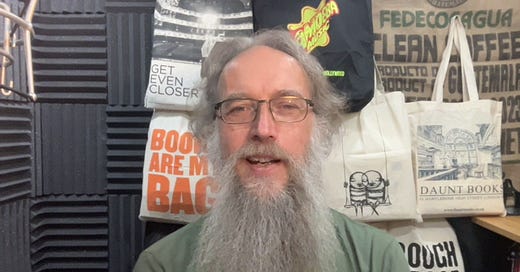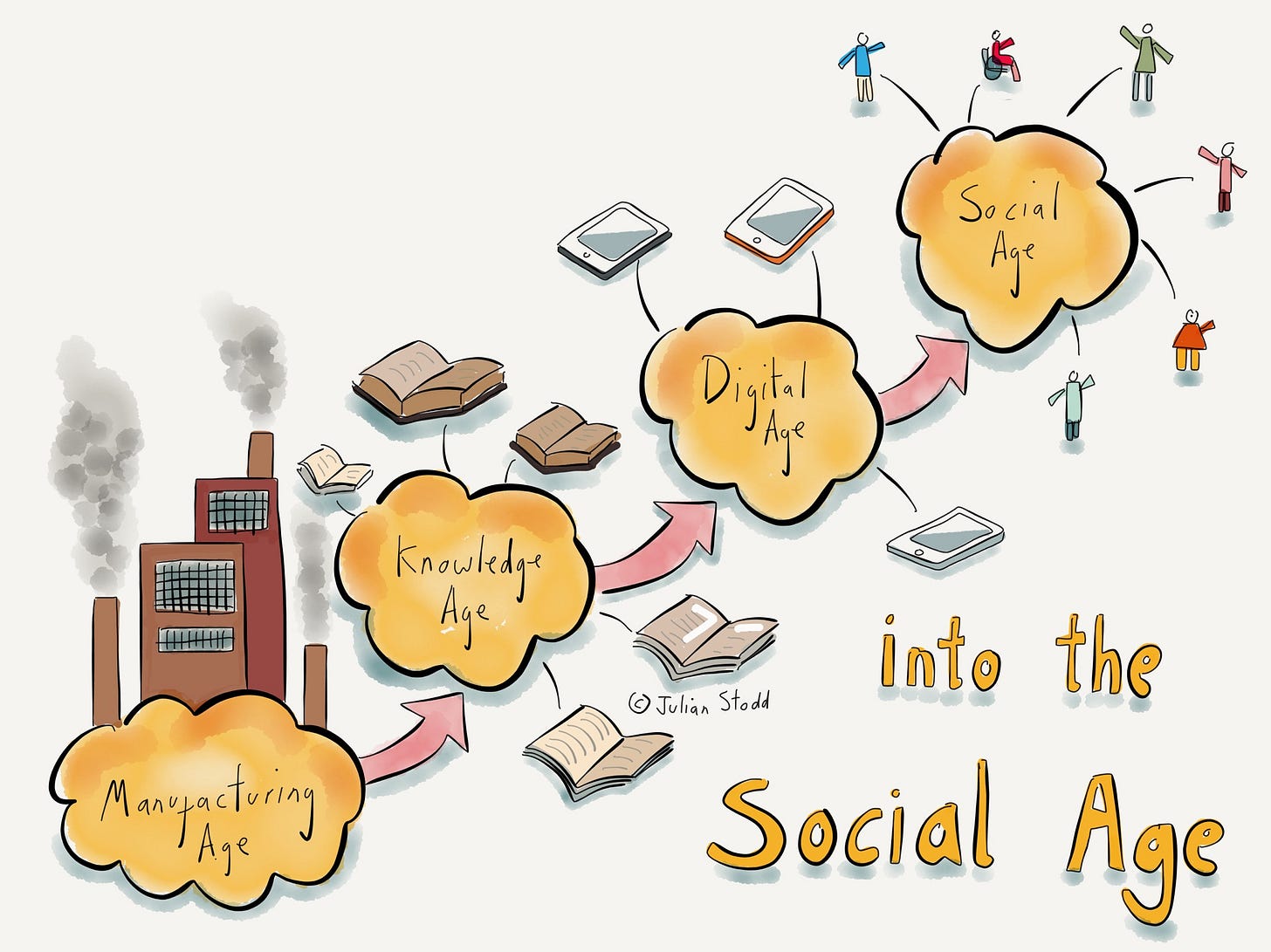One of the most interesting aspects of the Social Age has been a general rebalancing of power between our formal, structural systems (Organisations, Governments, Religions, Brands etc) and the radically connected individual.
It’s representative of a wider shift, whereby infrastructure (with which Organisations, Governments, and Religions have a solid relationship) has often become a burden to systems, whilst distributed and shared infrastructure (pretty much anything web based, and community governed or open source) is available for free, or for a simple subscription.
Historically the Industrial Organisations was really defined by infrastructure - be that railways, factories, networks, printers, telephones, fleets, or sensors. Today, by contrast, we effectively have the ‘infrastructure free’ organisation. An individual, with the right ideas, and community, can create a product or service, and take it to market at scale, without ever owning a factory or building an HR team. And indeed that person themselves may become a brand, with clear financial value and long term recurring revenue, without any Organisation at all.
It would be easy to view this change as trivial, but it is not: it’s political. And it’s about learning. And innovation. And change.
You used to employ me for my utility and time, but today you are hiring access to my network and it’s collective ‘sense making’ potential. You are seeking my invested engagement and goodwill. And the employee is rarely going to be grateful for the infrastructure that you bring. I like a good office, and a fast printer, but i also like my ipad and Starbucks.
It’s no longer ‘work’ and ‘home’. It’s work, home, and dozens of other places to be, and to belong.
When describing the Social Age, i usually say that it’s not one ‘thing’, but rather its everything. Everything is a little bit different, which is another way of saying that almost nothing is still the same. And hence at some point it becomes paradigmatic. Everything has changed and hence there is a dramatic evolutionary pressure on our Organisations to adapt.
Within this understanding, ‘Power’ is important, because our legacy, Domain based Organisations, were essentially structures of codified power, wrapped around their infrastructure, control of narrative, codification of knowledge, and ability to create the conditions for consistency, conformity, replicability and hence deliver, globally, at scale. But as power evolves, so too do these mechanisms of effect.
Our Organisations become multi-dimensional: not simply formal systems (and formal effect), but formal and social systems, intertwined, and held within an evolved context. And there is not one social system, but many parallel ones.
This is the true context of leadership today, the context of learning, of culture, and of change. Even of innovation, belonging, and engagement. Context is everything, and yet it shifts.
If we fail to incorporate this thinking into our strategic view, we are likely to optimise our Organisations for a world that has gone. I am acutely aware that my interpretation will be wrong, but that is almost irrelevant: whilst my forward facing interpretation is doubtless weak, the fact remains that we are not where we were. The work of researching and conceptualising the Social Age - or whatever you choose to call it - is the work of strategic leadership - and to do so not trapped by our certainty of our Industrial past.
My Writing
I’ve been back to my roots with this article on structures of Social Learning. It elaborates some of the key ideas and language around the Scaffolded Social Learning approach.
This piece builds on my work from ‘Engines of Engagement: a curious book about Generative AI’, and looks in detail at the idea of ‘cheating’ your way into a job - a current fascination with how people are using GenAI to ‘cheat’ at recruitment.
Finally, a short reflection on our ‘Hidden Spaces’ from last week. The idea of ‘Edge Lands’ and ‘Cultural Graffiti’ is important, and will form part of the next Social Leadership book.
You can find some other key writing on Edge Lands and Cultural Graffiti here:
Best wishes, Julian












Share this post